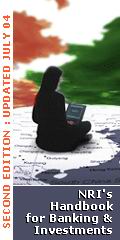|


|
Central bankers call for more action to reduce
foreign exchange settlement risk
In a report published on 13th May 2008 by the Committee on Payment and Settlement Systems (CPSS), central bankers have highlighted the need for further action to reduce foreign exchange settlement risk. The report, Progress in reducing foreign exchange settlement risk, features the results of a major survey of how over 100 banks and other institutions active in the FX market manage the risks that can arise when settling foreign exchange transactions. It contains specific recommendations for individual institutions, industry groups and central banks to reduce and control remaining exposures that may still present systemic risk.
“The financial services industry has made significant progress in dealing with foreign exchange settlement risk. However, more can and should be done to tackle remaining exposures and to guard against the risk of reversing the progress that has already been achieved,” said Timothy F Geithner, President of the Federal Reserve Bank of New York and CPSS Chairman.
Foreign exchange settlement risk has long been a concern of the G10 Governors and the CPSS due to the implications for systemic risk. In the light of the survey’s results, central banks will explore ways to work with banking supervisors and other regulators to ensure that financial institutions adequately control their foreign exchange settlement exposures on an ongoing basis.
Nout Wellink, President of the Netherlands Bank and Chairman of the Basel Committee on Banking Supervision, said: “The Basel Committee welcomes this important report, and we have begun to discuss how best to work with the CPSS to encourage further progress.”
Mr Geithner also said: “Recent market conditions emphasise how important it is that the settlement infrastructure supporting financial markets is robust and reliable, so that markets have the confidence to function normally even in adverse circumstances.”
The survey results show that a comprehensive long-term strategy endorsed by the G10 central banks in 1996 to reduce the systemic risk arising from the way foreign exchange transactions were settled has achieved significant success. In particular, 55% of FX obligations are now settled using CLS Bank, a specialised service for settling FX trades on a “payment versus payment” basis. “This is an important accomplishment, but more needs to be done,” said the Chairman of the CPSS. Of the 45% of FX transactions still settled outside CLS, most use traditional mechanisms that are subject to foreign exchange settlement risk. Furthermore, half of all FX settlement exposures last overnight, not just intraday.
The report therefore recommends action by individual institutions, industry groups and central banks. Individual institutions need to ensure that the risk controls and incentives they have in place favour the use of risk-reducing FX settlement methods. Industry groups should continue to develop services for settling FX trades that will help to reduce remaining risks, particularly services for settling same day and certain next day trades. Central banks will work with supervisors to encourage continued progress by the financial industry.
(This is Press release of BIS)
Survey Indicates that 90% of Asian Banks Have Commenced Preparations for Pillar 2
Steps to strengthen the resilience of the banking system
Current challenges in the global financial markets
Highest levels of political and economic uncertainty in 2008
CLICK FOR MORE FEATURES & STORIES

|
|



|







